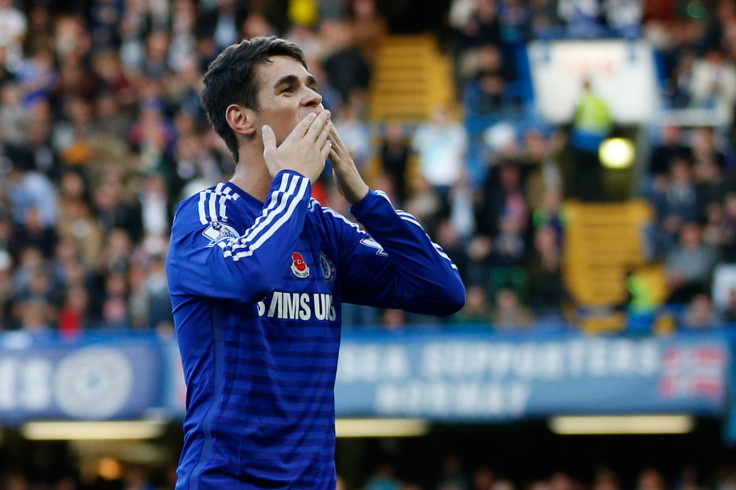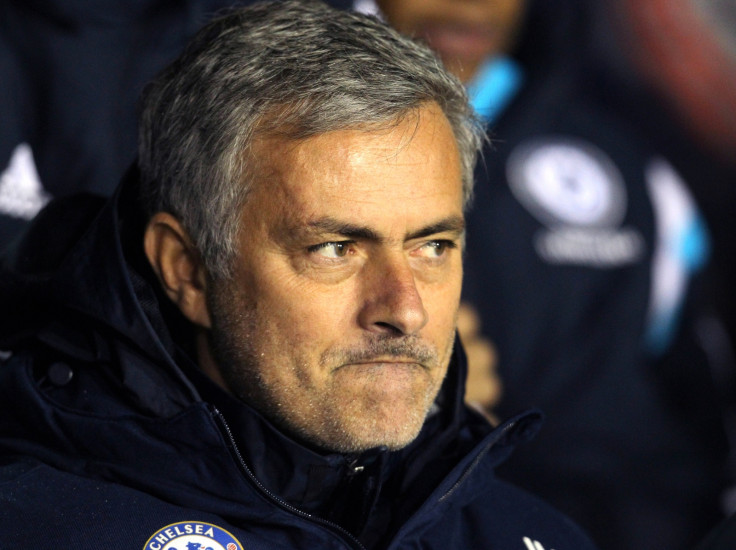Chelsea Fans Aren't too Bothered About Club's Profit - but We Know it Funds Our Dreams

Last week Chelsea FC announced that they would make an £18.4 million profit on a record turnover of £318.9 million for the financial year ending 30<sup>th June 2014. Not only is this the first time that the club has broken through the £300 million barrier, but it reflects a 25% increase on the previous year's turnover, and is only the second time since the arrival of Roman Abramovich that the club have recorded a profit.
Big deal? What does this have to do with Chelsea supporters who - by and large - only care about the players and performances on the pitch, the trophies in the cabinet and the tales of expeditions to the Camp Noul and Vincente Calderon in support of the team they love?
Well any supporter old enough to remember lobbing loose change into a bucket emblazoned with "Save the Bridge" might be shedding a tear, grateful that the days when the club were perennially facing bankruptcy seem to have disappeared forever. In fact you don't have to be that old to remember a time when we were one week from disappearing altogether – and that was when Roman Abramovich arrived with his tank firing wads of money at the lawn of every other Premier Club (according to David Dein).
Of course, if you were an Arsenal supporter receiving news of profitability, you would be salivating at this success (far more important than a trophy to the good burghers of north London), pouring over the stats whilst drinking a latte. But to many Chelsea supporters it seems more of an embarrassment.
After all what does profitability have to do with football – it's not a business, its pleasure, a branch of entertainment focused on clean sheets rather than spread sheets, winning margins not profits margins.
Well, sadly, football has very much been hijacked, commoditised and turned in to a business, but I'm not entirely sure that Chelsea's ascent into profitability necessarily means that their motive is purely to make a profit for its own sake.
There are many reasons why Chelsea supporters should welcome this news (although whisper it quietly).

The fact that the club has recorded losses approaching £700 million in total since Roman's arrival seems to indicate that the fear of bankruptcy is now a distant memory and the prime motive is clearly not profit. But any entity making losses this deep should be slightly unnerved no matter how deep the owner's pockets or genuine their intentions.
Abramovich stated years ago that one of his main aims was to get the club into a situation where it breaks even. Chelsea's match day revenue is fixed – limited by the capacity of Stamford Bridge and the fact that they already get 99% capacity during the season. The only two areas where the club can claw back the huge amount of money lavished on players and the Academy is from broadcast revenue and from commercial activities.
Clearly there has been a dividend from the massive hike in the Premier League broadcast deal, and continued success on the pitch, especially in Europe, adds to this. The club has also made great strides growing 'the brand' globally, increasing revenue from commercial activities by 50% from the previous year and putting the club in a position where it is getting close to the revenue-generating power of clubs such as Barcelona, Real Madrid, Manchester United and Bayern Munich.
But the one area that I believe has made an impact on the club's finances is its adherence to the rules of FFP, meaning that the club can only spend what they make. Again, whilst most supporters don't care about the implications of FFP, one only has to look at the impact that breaking its rules has had on Man City and PSG this season, to see that it can have a negative impact on success on the pitch – something that all supporters care about.
Any entity making losses this deep should be slightly unnerved no matter how deep the owner's pockets or genuine their intentions.
Chelsea's clever use of buying and selling academy players – not all of whom would make the grade at Chelsea anyway -has and will continue to generate revenue for the Club (until Platini and UEFA deem this contrary to FFP rules), and in many respects the profit accrued this year can be attributed to the sales of fringe players such as Mata, De Bruyne and Bruma.
This strategy is at the heart of how the club, I think, is now being very well run – for profit or not. There is no doubt that Chelsea has an Academy the envy of most clubs in the world. The scouting network and ability to secure this talent has been unparalleled in recent times, bringing in and developing an exciting crop of young players. The club also seem to be unwilling to be 'mugged' off by paying well over the odds for established players.
Hopefully this will lead to balance on the pitch as well as balance in the accounts. They won't all make the grade, but there is a hope that the best of the best of the youth will – and that is not something Chelsea supporters have been able to say with any confidence in the Abramovich era. And if they don't, the money generated through the sale of players who don't make the grade will be re-invested and so the process continues.
We might feel uncomfortable with it, but the importance of the Club making a profit is directly related to fulfilling the requirements of FFP, and more to the point our ability to continue to have success on the pitch.
In fact revenue generation and success on the pitch are symbiotic, and the club know and recognise this. Ron Gourlay said as much to me two years ago; if Chelsea don't generate revenue through their worldwide commercial activities then they don't have the funds to re-invest back in to the team. If the team are not successful year in year out then they do not generate the broadcast and commercial income needed to buy the players to be successful.
This has been one of the fundamental reasons why many managers who don't meet the club's incredibly high benchmark of success are so quickly dispensed with. The club would call that risk management.
If anything, re-investment is the key to all of this, and that is why Chelsea supporters should embrace the club making a profit. We will do so in the knowledge that all of the profit the club makes will be re-invested back in to keeping the club successful on the pitch and continue winning trophies, and ultimately that is what matters.
It is worth reminding ourselves what Roman Abramovich said when he purchased Chelsea back in 2003 for proof that football success, rather than profit, is the sole motive: "The goal is to win. It's not about making money. I have many much less risky ways of making money. I don't want to throw my money away, but it's really about having fun, and that means success and trophies."
I, for one, am thoroughly looking forward to another 10 years of watching some of the world's best players, winning more trophies and enjoying the journeys over land and sea following the team I love. Hey, I might even have a cheeky latte to celebrate!
David 'Stamford Chidge' Chidgey presents the award winning Chelsea FanCast TV show and podcast which can be seen every Monday at 19.00 on chelseafancast.com or You Tube or heard at mixlr.com/chelsea-fancast/ or downloaded from ITunes. Follow us on twitter @StamfordChidge and @ChelseaFanCast
© Copyright IBTimes 2024. All rights reserved.





